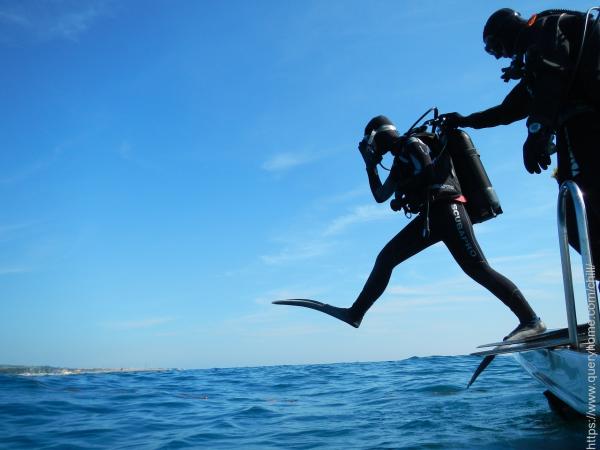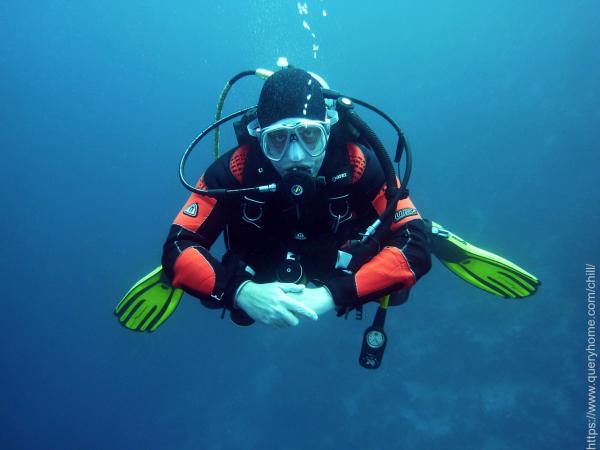
Scuba Diving is one the best, easiest and the safest water adventure that can be enjoyed by people of almost all the ages; until or unless there is a special medical condition. The simple water sport offers the breathtaking views of the underwater world and that too without having to know swimming. Starting from kids above 7 years of age, to the people in the late 50s – Scuba can be enjoyed by everyone. You can even walk on the seabed in shallow waters; touch the corals and marine life and even get kissed by the fishes. If you are lucky you can also get impressive views of the playful shoals of fish in wonderful colours. Scuba Diving is a wonderful sport that will never fail to surprise and amaze you, no matter how many times you do it.
Given below is the list of some tips to make your scuba diving as safe as possible. Read it properly and make the most of your time under the water.
Never hold your breath
Your scuba gear comes with an oxygen cylinder and breathing apparatus which enables you to breathe underwater. You should breathe at all times to avoid fatal injuries to the internal organs. The air in the lungs expands when you come out of the water and contracts when you dive into the water. If you hold your breath, the air can continue to expand and rupture the airbags or alveolus. The gas bubbles can even find their way into the bloodstream which can cause a sudden heart attack. Hence, breathe at all times properly!
Check Your Gear Properly
You should know your gear properly and ensure that it is working properly before diving into the waters. Tell your buddy to check his equipment as well. You should also learn how to unbuckle or remove the weights from your waist. Learn how to breathe using the equipment properly. The introductory tutorial should not be missed or overlooked.
Never Dive Alone
If you are a novice, avoid scuba diving alone. You should always opt for a buddy as it will be the safest measure. There can be many unexpected happenings underwater such as your oxygen cylinder gets short on gas; your weights come loose; you get lost, or any other such issue. Having someone with you in all these situations can really boost morale as well as increases the chances of survival.
Keep Yourself Physically Fit
It is important for your heart and blood vessels to be strong and in good condition before diving. So, if you are planning to undertake a long diving session or are preparing for some diving event, then you should keep yourself in good shape and health. Opt for cardio sessions on a daily basis to boost the heart and its working. Otherwise, you might face some issues such as breathlessness etc.

Never Exceed Your Limits And Keep Your Dive Safe
There are many different surroundings underwater which require special preparation and expertise in diving. Hence, you should never push yourself too hard. It is good to face challenges and explore the new areas underwater, but you have to be mindful of your abilities as well. Increase the difficulty levels and diving durations gradually.
Plan While You Dive
Always plan everything about the dive session BEFORE you enter into the water. And once you have entered into the water, you should stick to your plan. The communication is hindered under the water and you are not able to discuss things as freely as on land. So, instead of improvising, be wise and make plans which you stick to!
Achieve Proper buoyancy at the surface
Most of the fatalities occur during the ascent when the diver is fatigued. Hence, you should detach the weights and opt for developing the positive buoyancy at the water surface before coming out. This will help you conserve energy and come out of the water without any troubles. You should also fully inflate the BCD.
Make Safe Ascents
The rate of ascent should also be monitored properly to ensure safety. Otherwise, the nitrogen will not get removed from the system and cause bubbling in the blood. This will, in turn, lead to the decompression sickness. The ascent rate should not be more than 30 feet per minute to avoid decompression sickness. Before you go for the ascent, you should fully deflate the BCD and always stay away from inflating button during the ascent. Your guide diver will educate you about the STELA or Signal, Time, Elevate, Look and Ascend!
Know The Dive Signals
The underwater communication is mediated via the hand signals which are also called as the diving signals. You should memorize them and use them to convey your status and well being. We have the basic urge to talk and open mouths to communicate. This can lead to inhaling and ingestion of seawater. Hence, always pay attention when the guide is telling you about the signals.
Keep an Alternative Air Source
If you are going to dive into the deep waters, you should always keep an alternative source of air. This will come handy in any emergency situations.
So, follow these tips and make the scuba diving as safe as possible!
Bond Safari Kovalam is one of the best scuba diving in Kerala to learn professional diving for people of all ages. You can also book your water sports with the agency and make the most of your coastal adventures with the best gear and the best guides. For more information, log on to "www.bondsafarikovalam.com"
